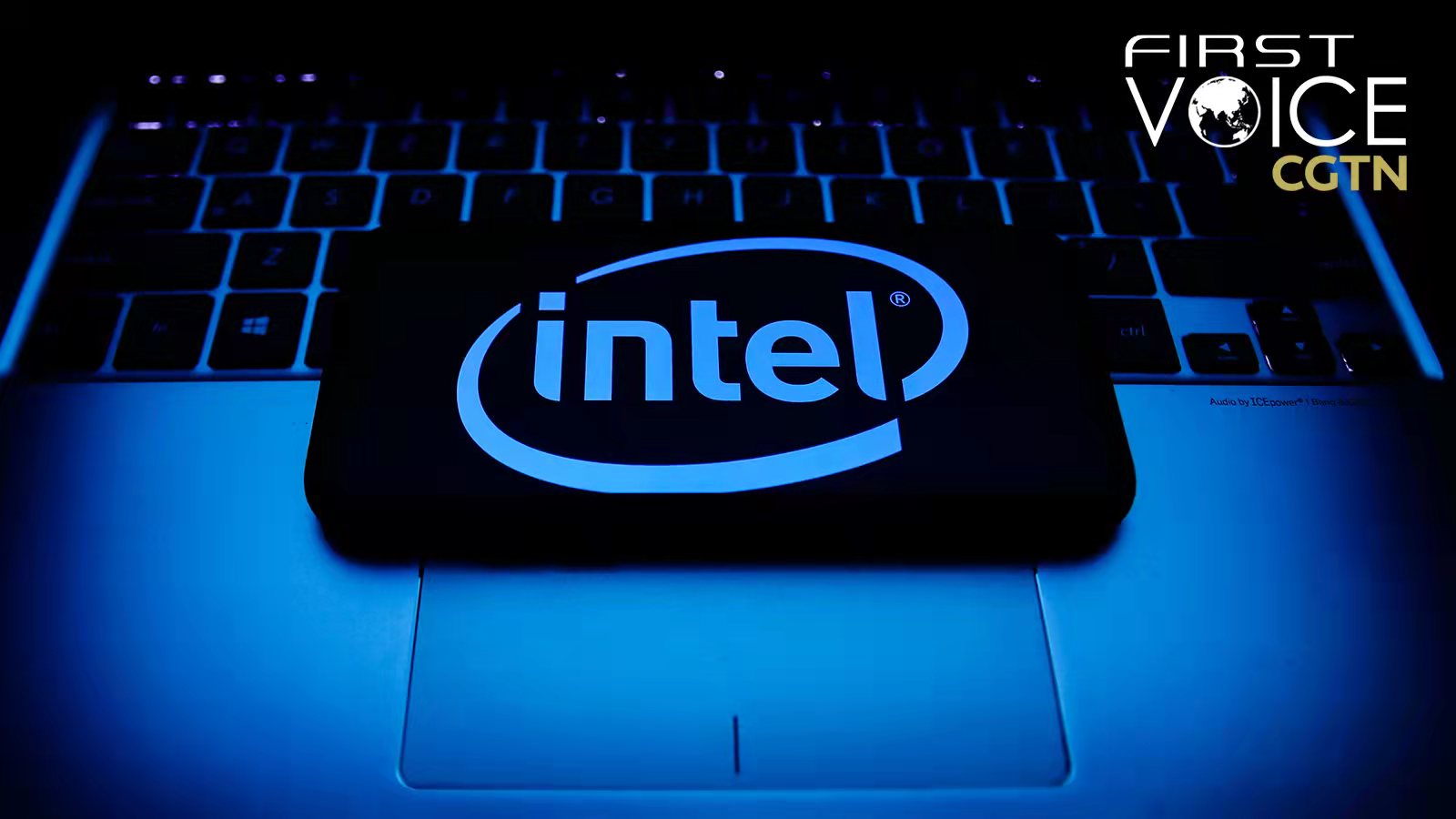
Editor's note: CGTN's First Voice provides instant commentary on breaking stories. The daily column clarifies emerging issues and better defines the news agenda, offering a Chinese perspective on the latest global events.
After provoking a furious response from Chinese netizens, Intel apologized for telling its suppliers not to source products or labor from China's Xinjiang Uygur Autonomous Region on December 23. In its apology, there's no mention of retracting the previous policy regarding sourcing products or labor from Xinjiang. The question is: Would an apology work?
This saga has no reason to exist in the first place. As pointed out by the Global Times, products from Xinjiang are only a small fraction of Intel's supply chain. Putting the ensuring "our supply chain does not use any labor or source goods or services from the Xinjiang region" rhetoric into the open letter has virtually no impact on the company's business operations or revenues. The only reason that Intel did so was to appease the anti-China fervency in the United States, especially since the House of Representatives passed the Uygur Forced Labor Prevention Act in early December.
And Intel realizes that the Chinese market has a high degree of dependency on its products. According to various data sources, Intel has around 75 percent market share of CPUs in China. Punishing the company might deal a blow to China's tech market. This makes it easier for the company to cozy up to the U.S. government on its anti-China sentiment.
But in its appeasement, Intel ignored reality. The reality is there is no forced labor in Xinjiang, and just because U.S. politicians said there is, doesn't make it the truth. The political correctness in the United States today is to view China as the ultimate human rights villain, and Xinjiang has been a crucial part of American propaganda to slander China. Intel rushed to ensure that its policy reflects the politically correct rhetoric in America and failed to take into account that political correctness doesn't mean the truth.

A bustling night market in Hotan City, Xinjiang Uygur Autonomous Region, China, May 30, 2021. /CFP
A bustling night market in Hotan City, Xinjiang Uygur Autonomous Region, China, May 30, 2021. /CFP
It is commendable that Intel quickly realized the impact its letter had on Chinese customers and moved to issue an apology. But what happened with the company should be a cautionary tale that alarms all companies doing business in the United States and China.
Consider this: Intel has been operating in China for close to 40 years, extracts 26 percent of its revenue from the Chinese mainland and Hong Kong and has nearly 10 percent of its properties, factories and equipment located in China. Intel should know China well, more so than many other companies. And if a company like Intel could fall prey to the detrimental anti-China sentiment in the United States, what about others?
The toxicity of the political climate in the United States is forcing an outsized political burden onto regular companies and multinational conglomerates. Many are being pressured to juggle between expanding their presence in China and avoiding the wrath of the American government or the American public. Not only does this put an extra operational hurdle on the companies, but it can turn what are supposed to be apolitical organizations into political entities unequipped to shoulder such responsibility. It is harmful, if not lethal, to the idea of free trade and globalization.
Companies need to watch out. Before jumping to public display of loyalty to the United States, the first step is to check whether what they are jumping into is right and truthful. China and the Chinese people can forgive a single mistake. But this movement to politicize all against China must stop, and it needs to start with the very top. Otherwise, it'd trap all companies that do business in China in an impossible position and would doom them into repeating the mistake Intel made.
The "Intels" of the world, watch out. You need smarter tactics.
(If you want to contribute and have specific expertise, please contact us at opinions@cgtn.com.)

